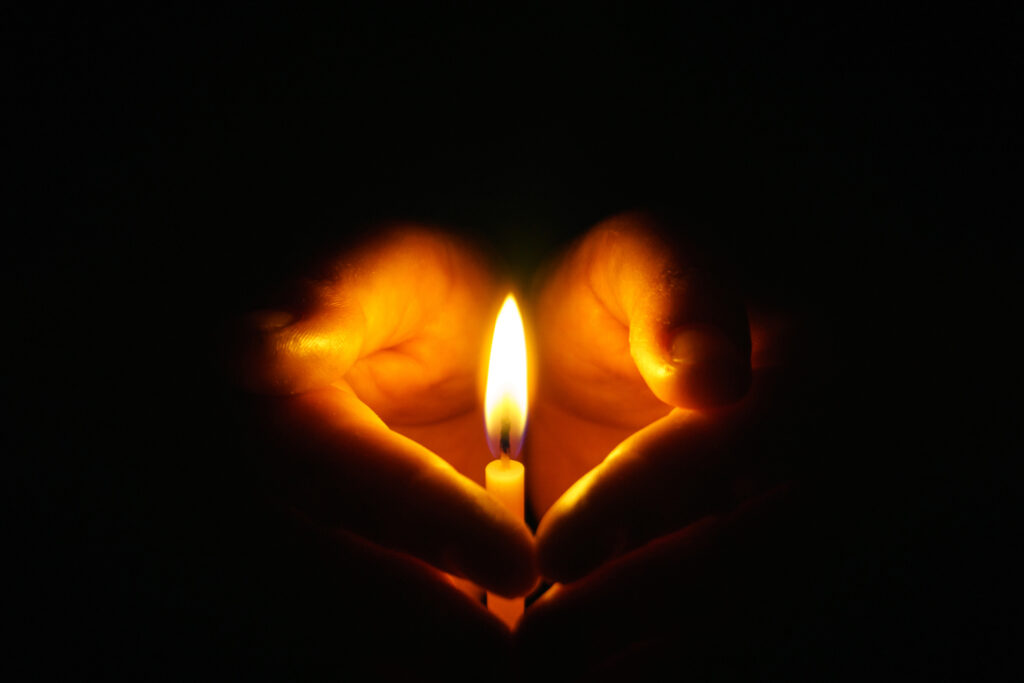
In this article
Introduction
In the quietude of the night, as stars illuminate the sky, Catholic night prayers provide solace and connection with the divine. For adults seeking spiritual serenity, these prayers serve as guiding lights, fostering introspection and tranquility. Join us on this profound journey of prayerful reflection, delving into short and long prayers, biblical insights, and timeless wisdom from notable figures.
Short Prayers
1. Guiding Light Prayer
As night unfolds, we seek Your guiding light, O Lord. Illuminate our paths with wisdom and grace. May Your presence be a beacon, guiding us through darkness. In Your light, we find assurance in the journey of life.
2. Peaceful Rest Prayer
In quiet moments before sleep, grant us peace, dear Lord. Calm our minds, still our hearts, and envelop us in Your comforting embrace. May we find rest in the assurance of Your love. With every breath, let Your peace settle within our souls.
3. Gratitude Prayer
As we conclude the day, we offer gratitude, O God. For blessings received and challenges faced, thank you. Grant us strength to face tomorrow with renewed faith and resilience. In gratitude, we find a deep wellspring of joy.
4. Forgiveness Prayer
In the silence of the night, we seek forgiveness, Heavenly Father. For shortcomings, grant us Your mercy. Help us extend this forgiveness to others as we strive to be more like You. May forgiveness be the key to freedom in our hearts.
5. Hopeful Tomorrow Prayer
As we lay our burdens before You, Lord, instill hope in our hearts. May the dawn bring promises of a new day filled with Your grace. Grant us the courage to face challenges with unwavering faith. With hope, we rise to greet the dawn of a new beginning.
Long Prayers
1. Prayer of Surrender
In the profound stillness of this night, O Heavenly Father, I humbly kneel before Your majesty, surrendering the weight of my worries and fears into the vastness of Your eternal care. As the moonlight bathes the world in its soft glow, I entrust my life into Your sovereign hands. In this sacred act of surrender, grant me the peace that surpasses all understanding, a tranquility that can only be found within the refuge of Your divine embrace. May Your presence, like a gentle breeze, carry away the anxieties that burden my soul, leaving in their wake a deep sense of assurance that I am held in the secure grip of Your unwavering love.
2. Lamentation and Healing Prayer
Merciful Lord, as the tapestry of night unfolds, I stand in the shadow of Your boundless compassion, pouring out the depths of my heart’s lament before Your throne. In this vulnerable moment, I lay bare the wounds that weigh heavy on my soul. Look upon me with Your eyes of mercy and grace, and let Your healing touch descend like a gentle rain, washing away the stains of sorrow and despair. In the silence of this night, may Your comforting presence be a soothing balm, bringing solace to the aching corners of my spirit. Grant me the strength to rise from the ashes of my affliction, for in Your compassion, I find not only solace but a divine restoration that makes me whole once more.
3. Intercession for Others Prayer
O Loving God, in the hallowed quietude of this sacred moment, I raise before You the heartfelt concerns of others, weaving a tapestry of intercession for those in need. As I stand in the gap, a humble conduit of Your boundless love, let Your healing touch and grace flow abundantly upon them. Encompass them in the warmth of Your unfailing love, bringing comfort to the broken, strength to the weary, and hope to the downtrodden. Use me, O Lord, as an instrument of Your love, a vessel through which Your mercy is poured out upon the lives of those who suffer. In this sacred act of intercession, may Your compassion ripple through the lives touched by my prayers.
Biblical Insights
In exploring the profound connection between faith and night prayers, we turn to the Bible for timeless wisdom.
- Psalm 4:8 (NIV): “In peace, I will lie down and sleep, for you alone, Lord, make me dwell in safety.”
- Philippians 4:6-7 (NIV): “Do not be anxious about anything, but in every situation, by prayer and petition, with thanksgiving, present your requests to God. And the peace of God, which transcends all understanding, will guard your hearts and your minds in Christ Jesus.”
- Matthew 11:28 (NIV): “Come to me, all you who are weary and burdened, and I will give you rest.”
- 1 Thessalonians 5:16-18 (NIV): “Rejoice always, pray continually, give thanks in all circumstances; for this is God’s will for you in Christ Jesus.”
Night prayers, as reflected in the Bible, offer a pathway to peace, rest, and divine guidance. They encourage a spirit of gratitude, trust, and continuous communion with God, reinforcing the profound impact of prayer on the human soul.
Famous Quotes
- “Prayer is not asking. It is a longing of the soul. It is daily admission of one’s weakness. It is better in prayer to have a heart without words than words without a heart.” – Mother Teresa
- “I pray because I can’t help myself. I pray because I’m helpless. I pray because the need flows out of me all the time, waking and sleeping. It doesn’t change God; it changes me.” – C.S. Lewis
- “God does not want to do everything, without you. He created you free. Whatever he plans to accomplish in you and through you, he wants it to be fulfilled in you and with you.” – Saint Augustine
Studies & Statistics
Delving into the realm of studies and statistics, a wealth of research underscores the profound impact of nightly prayers on individuals’ well-being and spiritual lives.
- Mental Well-being: Numerous studies highlight a positive correlation between regular prayer practices and improved mental well-being. Engaging in nightly prayers has been associated with reduced stress levels, increased emotional resilience, and a greater sense of inner peace. This intimate communion with the divine serves as a source of comfort during challenging times, fostering emotional stability and a heightened overall sense of happiness.
- Quality of Sleep: Research indicates a significant link between nightly prayers and enhanced sleep quality. Those who incorporate prayer into their bedtime routine often experience a more peaceful and restful sleep. The act of prayer provides a moment of reflection, gratitude, and surrender, creating an atmosphere conducive to relaxation and tranquility. As a result, individuals often wake up feeling more rejuvenated and ready to face the day.
- Life Satisfaction: Studies on the correlation between prayer and life satisfaction consistently show that individuals who engage in nightly prayers tend to report a higher level of overall life contentment. The practice of expressing gratitude, seeking guidance, and finding solace in prayer contributes to a deeper sense of purpose and fulfillment. This profound connection with the divine aligns individuals with a broader perspective, instilling a sense of peace and satisfaction in their daily lives.
- Coping Mechanism: Nightly prayers have been identified as effective coping mechanisms during times of adversity. Research suggests that individuals who turn to prayer in moments of hardship demonstrate increased resilience and adaptive coping strategies. This spiritual resilience not only aids in navigating challenges but also contributes to a more positive outlook on life.
- Community and Social Bonds: Beyond personal benefits, studies indicate that communal prayer practices, including nightly prayers, strengthen social bonds and foster a sense of community. Shared spiritual experiences create a network of support and interconnectedness, promoting a sense of belonging and shared purpose among individuals.
As these studies unveil the multifaceted benefits of nightly prayers, it becomes evident that this timeless spiritual practice transcends individual devotion, influencing various aspects of mental, emotional, and social well-being.
Body Movements and Prayer Gestures
Engaging in Catholic night prayers involves not only the spoken word but also physical expressions that deepen the spiritual experience. These body movements and prayer gestures serve as a means of connecting the physical with the spiritual, enhancing the overall sense of reverence and devotion.
- Kneeling: Kneeling is a traditional posture of humility and submission in Catholic prayers. During significant moments of prayer, such as expressing contrition or surrendering one’s worries, kneeling can be a powerful gesture. It symbolizes an acknowledgment of God’s sovereignty and the willingness to submit to His divine will.
- Folded Hands: Joining hands in a folded position is a universal sign of prayer and reverence. This gesture is often employed during recitation of specific prayers or when seeking God’s guidance and protection. The act of bringing the hands together signifies unity and a focused connection with the divine.
- Sign of the Cross: The Sign of the Cross is a fundamental Catholic gesture that begins and concludes many prayers. Adults often make the sign by touching their forehead, chest, left shoulder, and then right shoulder. This act symbolizes the invocation of the Holy Trinity – the Father, the Son, and the Holy Spirit – and serves as a ritual of sanctification.
- Bowing: Bowing, especially during moments of profound reverence, is a gesture that expresses deference to the divine. A slight bow of the head during specific prayers or at the mention of sacred names is a common practice. This act symbolizes acknowledgment of God’s majesty and authority.
- Prostration: In more contemplative and solemn moments, some individuals choose to fully prostrate themselves, lying face down as an expression of profound humility and submission. While not as common in everyday prayer, this gesture is sometimes employed during special liturgical seasons or moments of intense spiritual significance.
- Candle Lighting: Lighting a candle before or during night prayers is a symbolic gesture. The flickering flame represents the presence of the divine, dispelling darkness and illuminating the path of prayer. It’s a visual reminder of Christ as the Light of the World.
- Open Hands: Opening one’s hands, palms facing upward, is a gesture of receptivity and openness to God’s grace. It is often used when offering prayers of surrender, thanksgiving, or supplication. This act symbolizes the desire to receive and be filled with the blessings and guidance of the Holy Spirit.
- Bowing of the Head: Bowing the head, a simple yet profound gesture, is often incorporated during moments of adoration, reflection, and acknowledgment of God’s presence. This movement signifies a humble acknowledgment of the divine and a readiness to listen to the voice of God in the stillness of the night.
As adults engage in Catholic night prayers, incorporating these body movements and prayer gestures can deepen the spiritual experience, fostering a sense of connection and reverence in the quiet moments of communion with the divine.
Integrating Night Prayers into Daily Life
Incorporating night prayers into your daily routine can be a transformative practice, nurturing a deeper connection with the divine and fostering spiritual well-being. Here are practical tips on seamlessly weaving this sacred ritual into your life:
- Establish a Sacred Space: Designate a corner or a specific area in your home as a sacred space for prayer. This could be a quiet nook with a comfortable chair, soft lighting, and meaningful religious symbols. Creating a dedicated space helps set the tone for a focused and contemplative prayer experience.
- Set a Consistent Time: Choose a time for night prayers that aligns with your daily schedule. Whether it’s right before bedtime or during the serene moments after dinner, consistency is key. Establishing a routine helps make night prayers a natural and integral part of your day.
- Unplug from Technology: Create a technology-free zone during your nightly prayer ritual. Power down electronic devices, silence notifications, and allow yourself to detach from the busyness of the day. This deliberate disconnection enhances the sacredness of the moment.
- Incorporate Reflective Practices: Before engaging in specific prayers, take a few moments for reflection. Review the events of the day, express gratitude for blessings, and consider areas that may need divine guidance. This reflective pause helps you approach prayers with a mindful and present heart.
- Utilize Prayer Resources: Explore prayer books, devotional guides, or online resources that align with your spiritual tradition. Having a structured guide can provide inspiration and assist in focusing your thoughts during night prayers. Consider incorporating Psalms, meditations, or prayers that resonate with your spiritual journey.
- Combine Prayers with Daily Routines: Integrate night prayers with existing daily routines. For example, incorporate prayers while brushing your teeth, washing your face, or preparing for bed. This creates a seamless transition and ensures that prayers become an instinctive part of your nightly routine.
- Include Family or Loved Ones: If possible, involve family members or loved ones in the practice of night prayers. This shared experience not only strengthens family bonds but also creates a supportive environment for spiritual growth. Consider praying together or sharing reflections after individual prayers.
- Embrace Flexibility: While consistency is valuable, allow for flexibility in your approach to night prayers. Life is dynamic, and circumstances may vary. Be open to adapting your prayer routine based on the demands of the day, ensuring that the essence of the practice remains intact.
- Express Gratitude and Intentions: Before concluding your night prayers, take a moment to express gratitude for the day’s blessings and articulate intentions for the upcoming day. This mindful practice helps instill a positive mindset and aligns your heart with hope and purpose.
- Embrace Silence: Don’t underestimate the power of silent contemplation. After structured prayers, allow moments of stillness and silence. In this quietude, listen for the whispers of the divine and let the peace of the night envelop your spirit.
By integrating night prayers into your daily life with intentionality and consistency, you cultivate a sacred rhythm that nourishes your soul, bringing depth and purpose to each day.
FAQ
Night prayers can be a deeply personal and flexible practice. While many find solace before bedtime, others prefer the stillness of the early morning. Choose a time that aligns with your routine and allows for focused communion with the divine.
Absolutely. Personalized prayers are a beautiful expression of your relationship with God. Feel free to craft prayers that resonate with your experiences, emotions, and aspirations. The essence lies in sincerity and genuine connection.
The duration of night prayers is subjective and can vary. It’s more about the quality of connection than the quantity of words. Whether brief or extensive, let your prayers reflect the depth of your spiritual engagement and resonate with the needs of your heart.
While having a quiet and conducive space can enhance your prayer experience, it’s not mandatory. The essence of night prayers lies in the sincerity of your heart. Whether in a designated sacred space or amidst the quietude of your home, create an environment that allows for focused reflection and communion with the divine.
Night prayers serve as a spiritual anchor, offering a moment of reflection, gratitude, and surrender. Engaging in this practice regularly can bring about a sense of peace, improved mental well-being, and a strengthened connection with your faith. It can also provide guidance and reassurance as you navigate the challenges of daily life.


